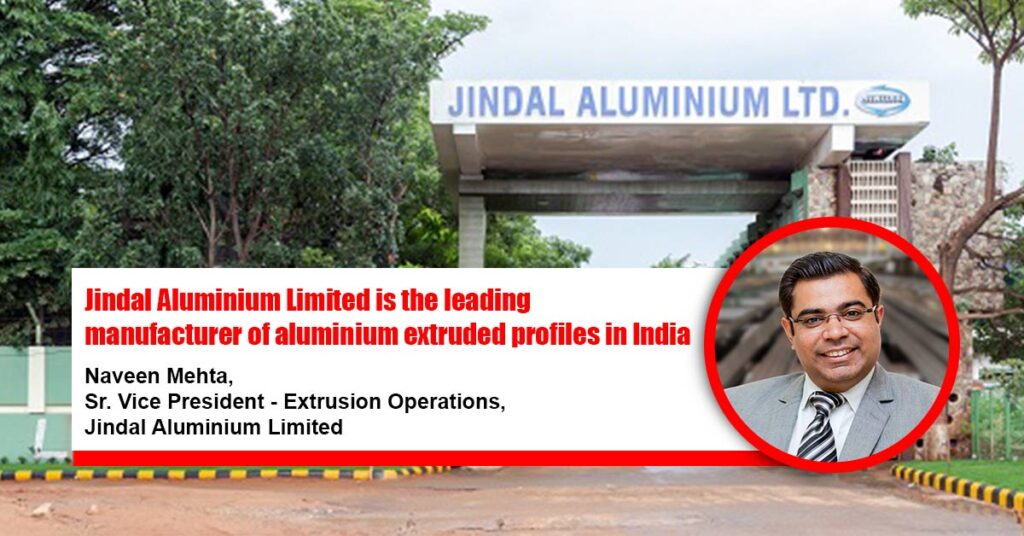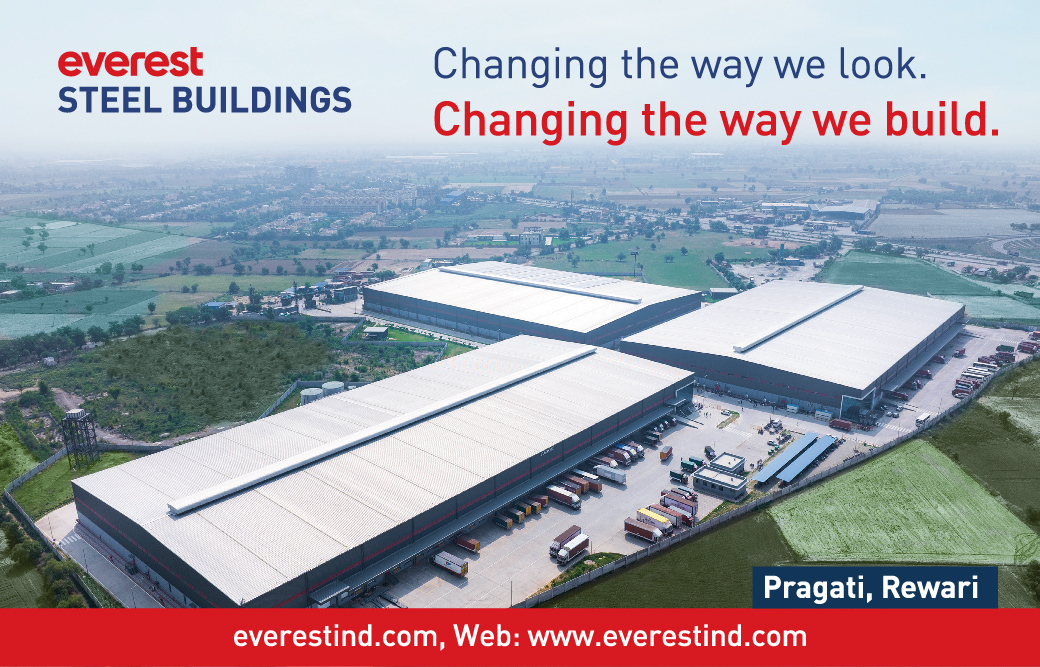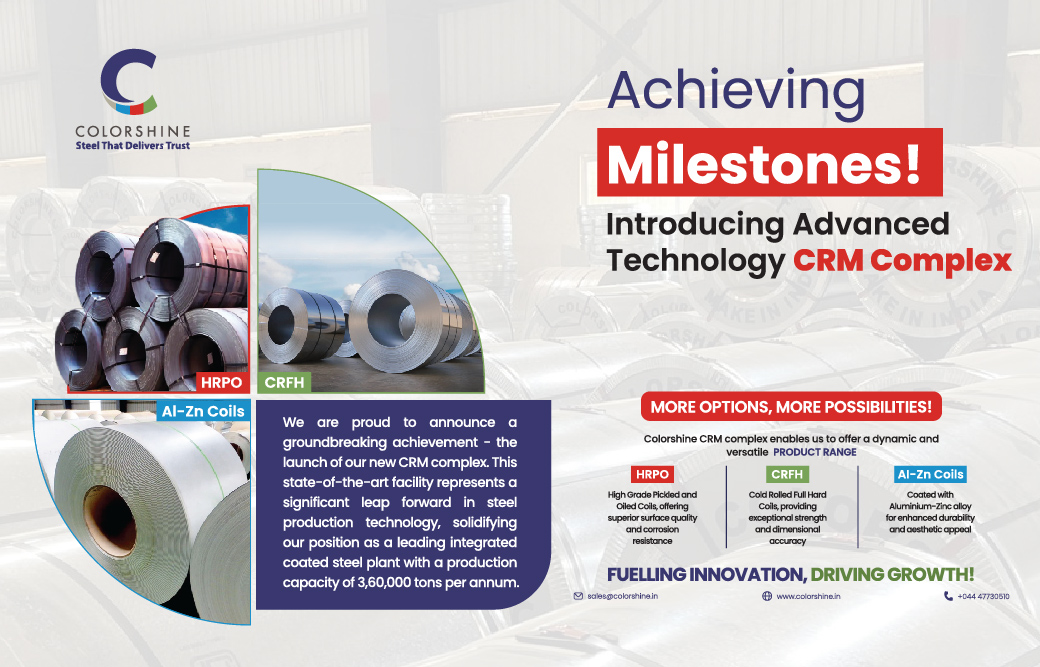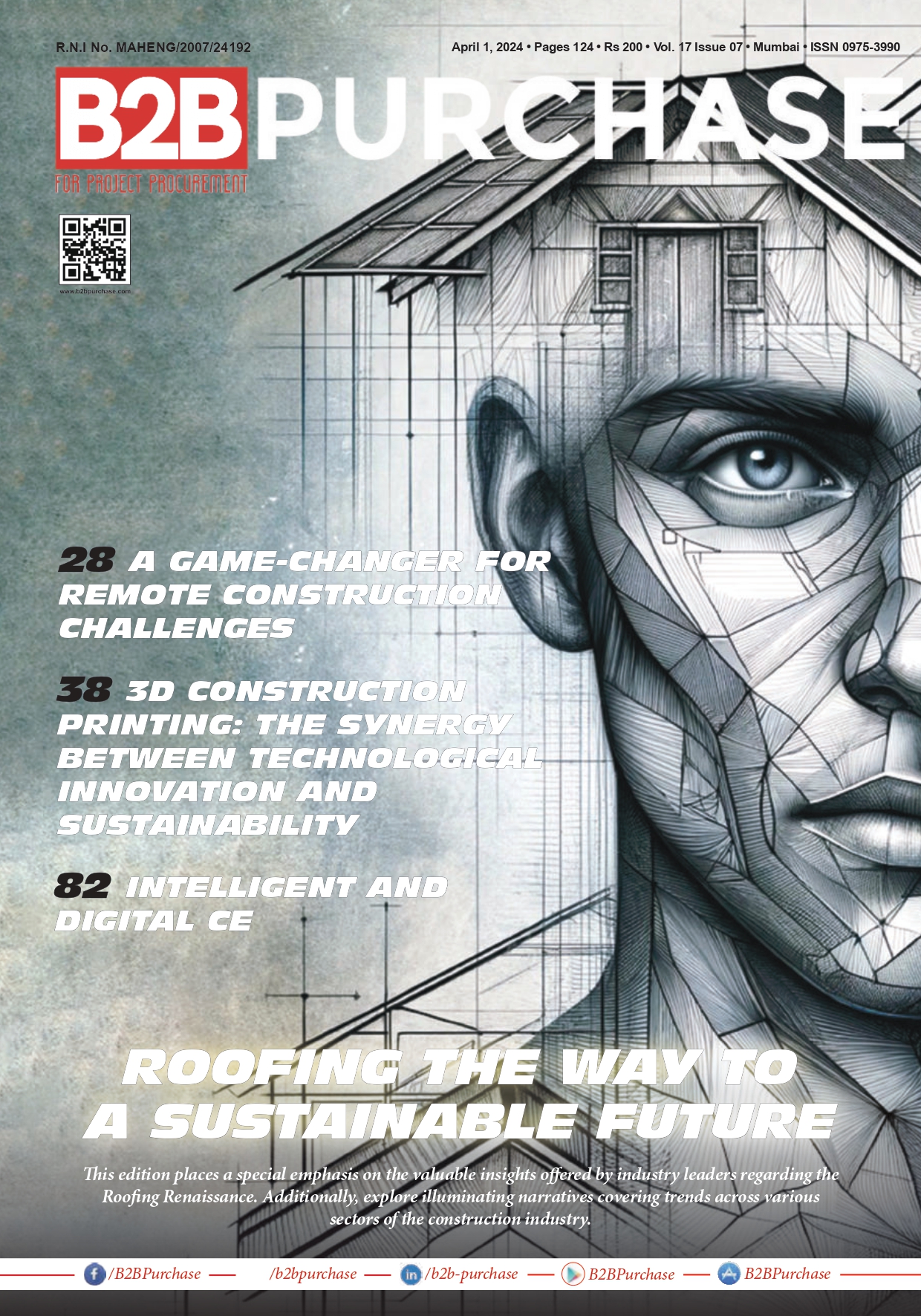Jindal Aluminium Limited (JAL) has a production capacity of up to 1,25,000 MT per annum. We have one of the widest ranges of profiles with expertise in manufacturing the most intricate ones, says Naveen Mehta, Sr. Vice President – Extrusion Operations, Jindal Aluminium Limited
What makes aluminium a reliable material for construction?
Aluminium boasts of intrinsic properties that make it widely sought after in construction. It enjoys the qualities of being a strong and safe metal, is resistant to corrosion, easily manoeuvrable and light in weight. Aluminium can be extensively found in building façade, windows, doors, louvres, scaffolding and several other construction applications.
What kind of advantages does it offer when it comes to resistance to chemicals?
Aluminium has a weathering characteristic that protects it. This self-protection capability ensures high resistance to chemicals. Due to the formation of an oxide layer on its exterior, aluminium becomes chemically inert and does not get corroded.
Could you shed some light on extruded product range?
Jindal Aluminium Limited is the leading manufacturer of aluminium extruded profiles in India with a production capacity of up to 1,25,000 MT per annum. We have one of the widest ranges of profiles with expertise in manufacturing the most intricate ones. These profiles make for wide and extensive use across various sectors. Its end-use in automobiles includes housing and gear pumps, engine parts and components, truck trailers, bus bodies, air-conditioning, metro coaches, shipyards etc. In construction, our extruded product range finds its use in executing sophisticated architecture. It includes load-bearing structures, structural glazing and facades, doors and windows, architectural hardware, false ceilings etc. In the power sector, aluminium extrusions are used everywhere from substations to transmission lines, switchgear, transformers, solar panel frames, wind power turbines and more. End-use in the medical field includes x-ray machines, diagnostic equipment, surgical tools. In consumer electronics, aluminium can be found in computers, LED lighting solutions, heat sinks, deception systems and many others. Besides these, office automation, defence, textiles machines, solar products, and household appliances, air-conditioning use extruded aluminium products.
When it comes to using aluminium for different infrastructure needs, what are the criteria of selection?
Today, 75 per cent of aluminium ever produced is still in use. Aluminium’s intrinsic properties ensure that it fulfils the selection criterion. It has a lasting endurance, can be manoeuvred for the requirement of structure and design, resistance to wear and tear, light yet strong are some of the characteristics that make it a better choice. Unlike others like steel, aluminium is rust free and can survive in all weathers, making it suitable for catering to various infrastructural needs. Besides fulfilling the criteria of a good rating for green construction; aluminium’s stability, durability and thermal efficiency are among the other advantages that it offers over other metals when it comes to selection for use in the construction world.
Cookie Consent
We use cookies to personalize your experience. By continuing to visit this website you agree to our Terms & Conditions, Privacy Policy and Cookie Policy.


















